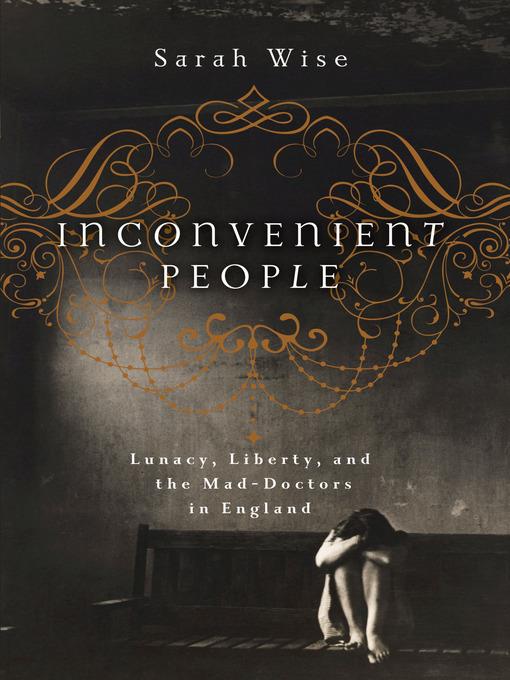
Inconvenient People
Lunacy, Liberty, and the Mad-Doctors in England
کتاب های مرتبط
- اطلاعات
- نقد و بررسی
- دیدگاه کاربران
نقد و بررسی

April 8, 2013
As Wise (The Blackest Streets) notes in this extraordinary psychosocial history, the “lunacy panics” of Victorian England were not unfounded—at the time, astounding numbers of middle- and upper-class individuals were being forced or tricked into asylums. It could be considered a mark of progress that the “alienists”—the name given at the time to the eponymous mad-doctors—had made treatment part of the “agenda” at all, but Wise keenly points out that “this ‘progress’ had gone hand in hand with what, to many, seemed to be the pathologising of perfectly ordinary human weirdness.” Included in the book are the remarkable stories of the high-strung Edward Davies, kidnapped at his family’s request and duped into custodial care; John Perceval, whose angry letters and “peevish diary” led to his release from institutionalization and a subsequent tell-all; Louisa Nottidge, whose financial support of a cultish group and religious fanaticism got her committed; and Catherine Cumming, found by one doctor to be a lunatic; by another, an imbecile; and by still another, perfectly sane. “How safe was anyone when the experts had such divergent views of insanity?” Wise’s meticulously researched study adds a fresh perspective to current scholarship on insanity and offers a chilling reminder of “the stubborn unchangeability of many aspects of the lunacy issue.” Illus.

June 1, 2013
UK author Wise (The Blackest Streets) tells the stories of particular men and women in Victorian England as they struggled against incarceration as lunatics, even though some were of sound mind. The 1828 Madhouse Act gave patients recourse to fight involuntary incarceration by "mad-doctors" who operated private "mad-houses." Wise reveals how lunacy allegations were driven primarily by family members in order to control money or owing to social, political, or personal disputes. She writes about eccentric and successful tea merchant Edward Davies, lunatic patient (later policy reformer) John Perceval, religious fanatic Louisa Jane Nottidge, and Lady Bulwer-Lytton, whose abduction and captivity ignited reaction from the political to the literary. Although her endnotes are light on specific sourcing, Wise draws her narratives from the contemporary periodical press, the minute books of a select committee of the Commissioners in Lunacy, the slim extant holdings from asylums, and personal stories found in other publications. VERDICT Wise's accessible narrative makes this disturbing area of history a less demanding read than perhaps the subject itself requires. Recommended for generalists as well as those studying Victorian social history or the history of British mental health laws, although the lack of a clear thesis or conclusion may disappoint them.--Annalisa Pesek, Library Journal
Copyright 2013 Library Journal, LLC Used with permission.

























دیدگاه کاربران